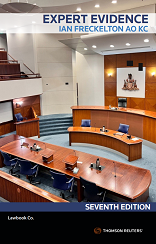
Expert Evidence 7e - Book
|
Book $276.00 RRP |
Date: 14/12/2023 Code: 9780455502908 Lawbook Co., AUSTRALIA |

Expert Evidence 7e - Book
Price: $276.00
|
Available Formats
| Format | Title | Date | Code | Price | |
|---|---|---|---|---|---|
| Book | Expert Evidence 7e - Book | 14/12/2023 | 9780455502908 | $276.00 |
Add to cart

Expert Evidence 7e - Book
Price: $276.00
|
| eBook - ProView | Expert Evidence 7e - eBook | 15/12/2023 | 9780455502915 | $276.00 |
Add to cart
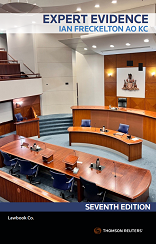
Expert Evidence 7e - eBook
Price: $276.00
|
| Book+eBook | Expert Evidence 7e Book+eBook | 15/12/2023 | 43194915 | $358.00 |
Add to cart
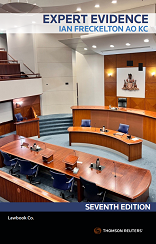
Expert Evidence 7e Book+eBook
Price: $358.00
|
Description
"Its value to practitioners hardly requires elaboration ... Many a barrister faced with the daunting task of cross-examining an expert ... has turned to Freckelton’s text in his or her hour of need and found invaluable assistance... (This) work is commendably ambitious. It is difficult to think of a field of forensic expert evidence which is not discussed." - The Hon Justice Christopher Beale, Supreme Court of Victoria, (2020) 44 Crim LJ 196
The Seventh Edition of Expert Evidence is the acclaimed work of first resort for analysing the complex law and practice surrounding expert witnesses and expert evidence in personal injury, commercial, criminal and family law litigation. It has been cited for over two decades by superior courts in Australia, New Zealand and other countries and is the leading international work on its subject.
Expert Evidence analyses the common law and statutory criteria for expert evidence admissibility, providing advocacy guidance on how best to assist expert witnesses in courts and to hold them accountable in cross-examination. It discusses the optimal ways for managing concurrent evidence and expert conclaves prior to court hearings. It reviews decisions in relation to the disciplinary and civil liability of expert witnesses, and the potential for wasted costs orders to be made against experts, as well as the lawyers who commission them. It analyses the role of assessors, referees and court-appointed experts, as well as the forensic consequences of courts’ codes of conduct for experts, including when breaches of such codes may have adverse consequences. It also reviews trends in appellate case law in relation to trial judges’ decisions to admit and decline to admit expert opinions.
Expert Evidence also deals with specialist knowledge where admissibility and reliability issues have been encountered, including in relation to novel medical and scientific evidence, and counter-intuitive opinions from mental health professionals. It examines expert evidence on accounting, engineering, statistical, anthropological, survey, planning evidence, and foreign law matters.
The Seventh Edition has been further refined to increase accessibility to legal practitioners and experts from a range of disciplines, and to widen its scope. Its international focus is significantly enhanced with legal authorities from across the common law world being referred to and critiqued, reflecting increasing signs of the adoption of internationally consistent approaches to expert evidence.
Key new developments in the Seventh Edition include:
- Substantially revised chapters on expert reports and on concurrent evidence;
- A new chapter on international disputes and litigation dealing with both civil matters and important aspects of expert evidence given in international criminal law proceedings;
- Analysis of numerous important criminal law decisions, including a sequence of judgments in the United Kingdom and Australia regarding novel areas of scientific evidence such as gait analysis and shoeprint evidence;
- New case law from the High Court of Australia, and State Supreme Courts, the Canadian Supreme Court and the New Zealand Supreme Court and Court of Appeal, impacting upon the admissibility of diverse areas of expert evidence;
- Substantially revised chapters on DNA testing, statistical and probability evidence, evidence by psychiatrists and psychologists, especially in relation to diagnosis, PTSD evidence, critical incident stress intervention evidence, and memory evidence; and
- Significantly updated chapters on nursing evidence and medical evidence, including relevant case law on shaken baby/abusive head trauma evidence.
You Might Also Like
-
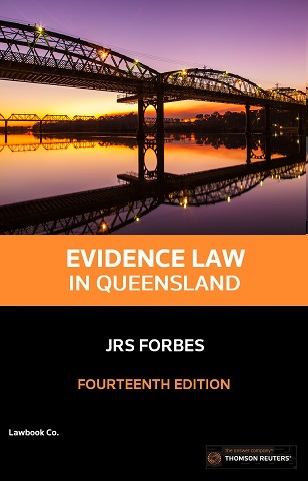
Evidence Law in Queensland 14th Edition - BookBook
$205.00
-
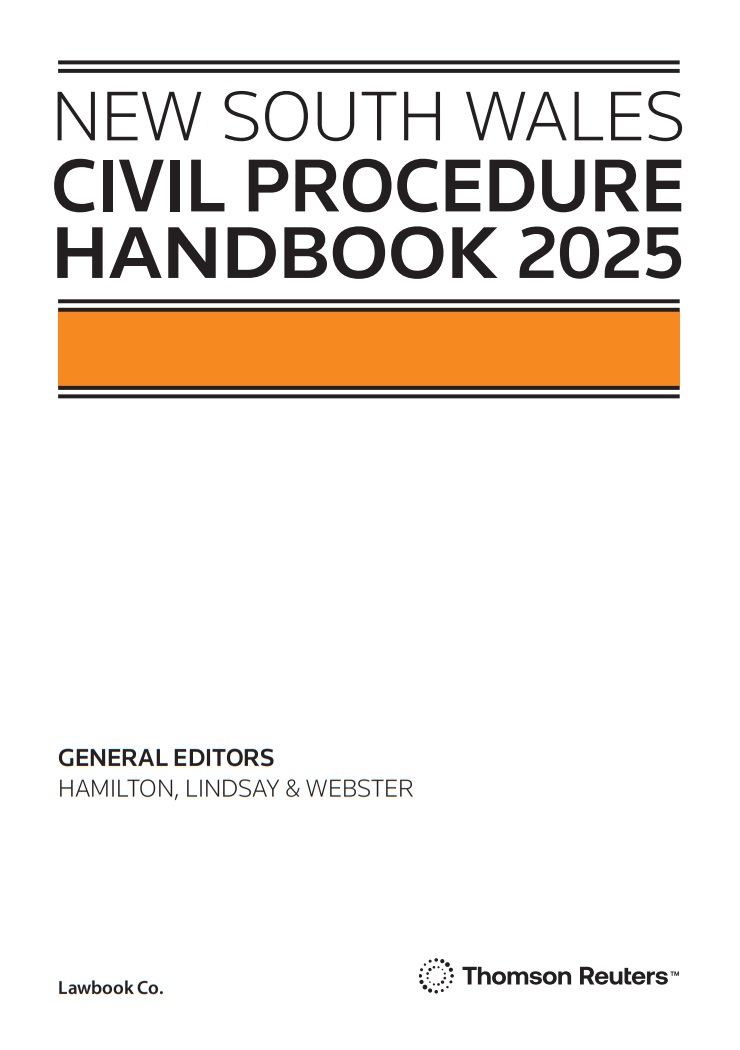
NSW Civil Procedure Handbook 2025 BookBook
$296.00
-
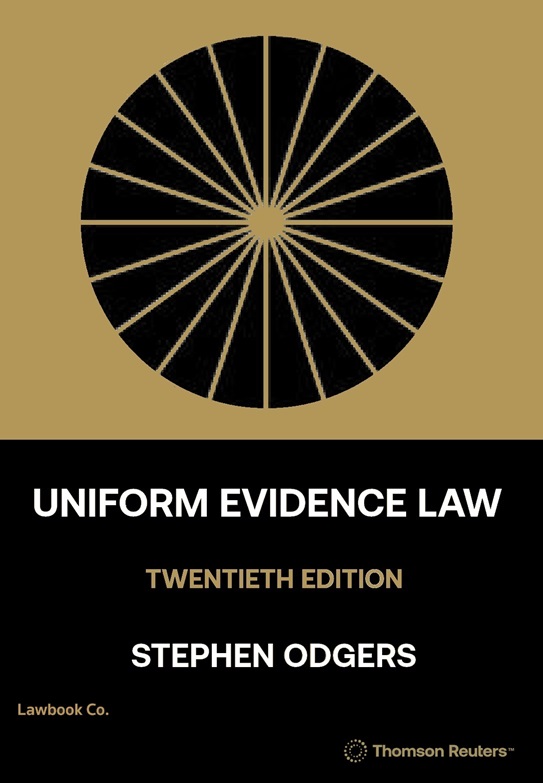
Uniform Evidence Law 20th Edition - BookBook
$195.00
-
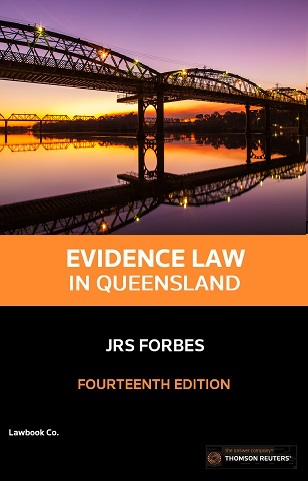
Evidence Law in Queensland 14th Edition Book+eBookBook+eBook
$267.00
-

NSW Civil Procedure Handbook 2025 Book+eBookBook+eBook
$385.00
-
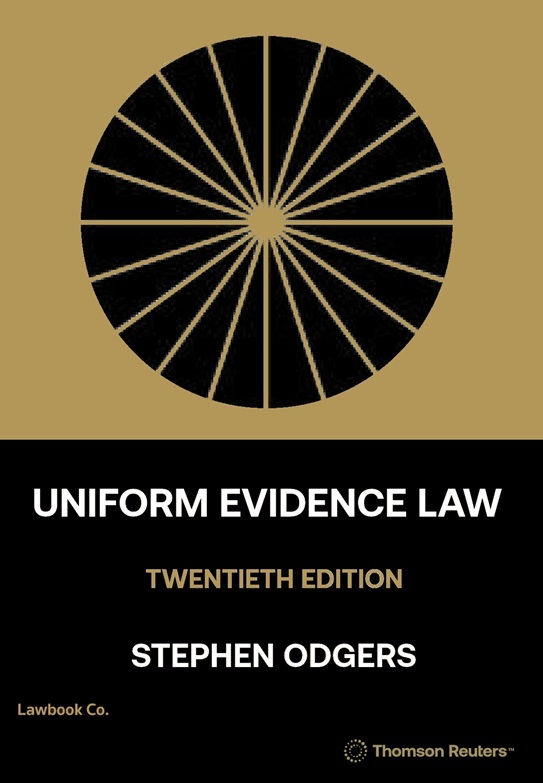
Uniform Evidence Law 20th Edition - Book+eBookBook+eBook
$253.00
-
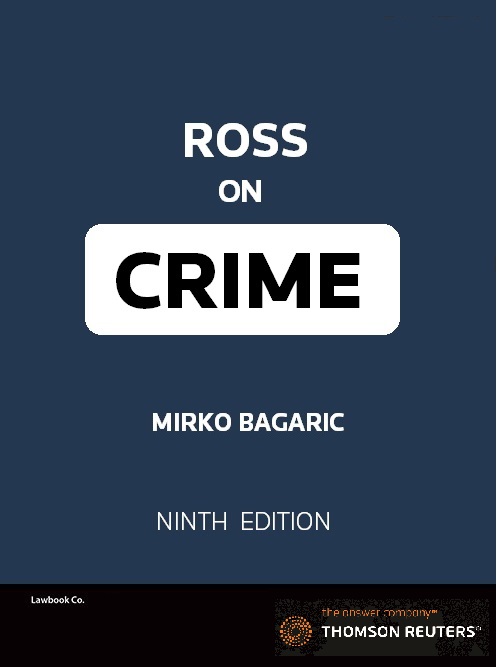
Ross on Crime Ninth Edition - eBookeBook - ProView
$342.00
-
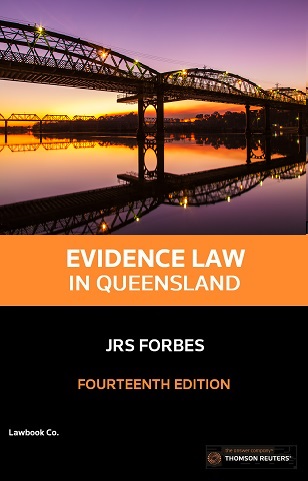
Evidence Law in Queensland 14th Edition - eBookeBook - ProView
$205.00
-
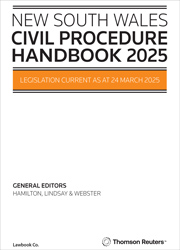
NSW Civil Procedure Handbook 2024 - eBookeBook - ProView
$309.00
-

NSW Civil Procedure Handbook 2025 eBookeBook - ProView
$296.00
-
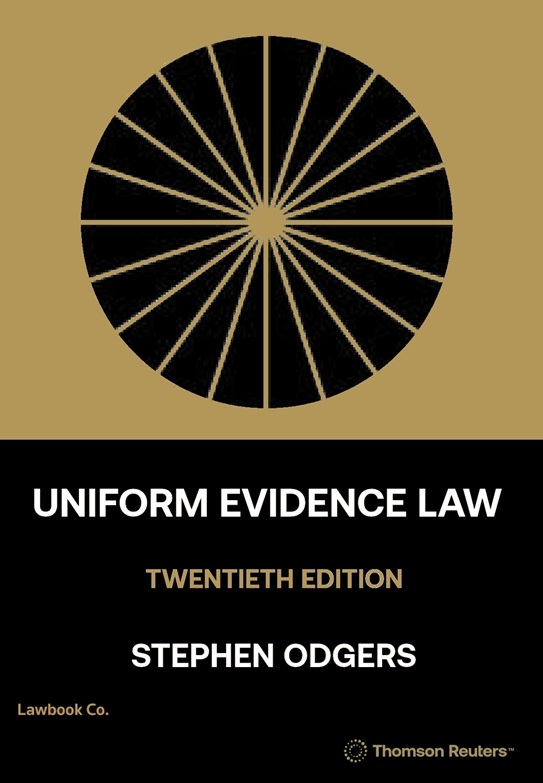
Uniform Evidence Law 20th Edition - eBookeBook - ProView
$195.00
-
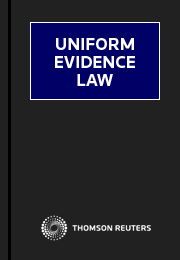
Uniform Evidence Law - eSubeSub - ProView
N/A
-
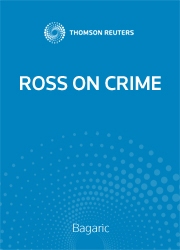
Ross on Crime eSubscriptioneSub - ProView
N/A
-
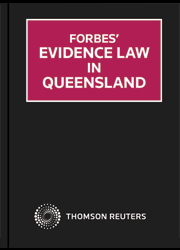
Forbes’ Evidence Law in Queensland - eSubeSub - ProView
N/A
-
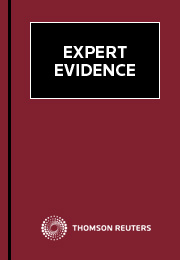
Expert EvidenceLooseleaf
N/A
-
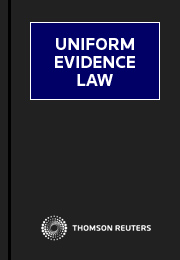
Uniform Evidence LawLooseleaf
N/A
Table of Contents
Full Table of Contents
PART 1 - INTRODUCTION
Chapter 1.0 Introduction
PART 2 - COMMON LAW EVIDENTIARY RULES
Chapter 2.0 Common law exclusionary rules
Chapter 2.05 The expertise rule
Chapter 2.10 The area of expertise rule
Chapter 2.15 The common knowledge rule
Chapter 2.20 The basis rule
Chapter 2.25 The ultimate issue rule
Chapter 2.30 Judicial notice
Chapter 2.35 Discretionary exclusion of expert evidence
PART 3 - STATUTORY EVIDENTIARY RULES
Chapter 3.0 Statutory law in Australia
Chapter 3.05 Statutory law in New Zealand
Chapter 3.10 Statutory law in the United States
Chapter 3.12 International Disputes and Litigation
Chapter 3.15 Law reform proposals
PART 4 - APPEALS
Chapter 4.0 Appeals in relation to expert evidence
PART 5 - PROCEDURE
Chapter 5.0 Forensic reports
Chapter 5.05 Court rules and ethical obligations
Chapter 5.10 Costs and client legal privilege
Chapter 5.15 Wasted costs orders
Chapter 5.20 Remuneration of experts
PART 6 - EXPERT WITNESSES AND DECISION MAKING
Chapter 6.0 Court-appointed experts
Chapter 6.05 Assessors
Chapter 6.10 Referees
Chapter 6.12 Single joint experts
Chapter 6.15 Conclaves
Chapter 6.20 Concurrent expert evidence
Chapter 6.25 Consecutive expert evidence
PART 7 - EXPERT EVIDENCE IN COURT
Chapter 7.0 Preparation and examination of the expert witness
Chapter 7.05 Cross-examination of the expert witness
Chapter 7.10 Sentencing evidence by the expert witness
PART 8 - LIABILITY OF EXPERTS
Chapter 8.0 Criminal and civil liability of expert witnesses and report writers
Chapter 8.05 Regulatory liability of expert witnesses and report writers
PART 9 - MEDICAL, DENTAL AND NURSING EVIDENCE
Chapter 9.0 Medical evidence
Chapter 9.05 Dental evidence
Chapter 9.10 Nursing evidence
PART 10 - MENTAL HEALTH EVIDENCE
Chapter 10.0 Psychiatrists' and psychologists' evidence
Chapter 10.05 Fitness for interview evidence
Chapter 10.10 Fitness to stand trial evidence
Chapter 10.15 Identification evidence
Chapter 10.20 Memory evidence
Chapter 10.25 Mental state evidence
Chapter 10.30 Syndrome evidence
Chapter 10.35 Profiling evidence
Chapter 10.40 Prediction of risk evidence
Chapter 10.45 Post-traumatic stress disorder evidence
Chapter 10.50 Critical incident stress intervention evidence
PART 11 - SOCIAL SCIENTISTS' EVIDENCE
Chapter 11.0 Survey evidence
Chapter 11.05 Historians’ evidence
Chapter 11.10 Anthropologists' evidence
Chapter 11.15 Cultural experts' evidence
Chapter 11.20 Linguists' evidence
PART 12 - SCIENTISTS' EVIDENCE
Chapter 12.0 Scientific evidence
Chapter 12.05 Novel scientific evidence
Chapter 12.10 Fingerprinting, footprint and footwear evidence
Chapter 12.15 Document analysis evidence
Chapter 12.20 DNA evidence
Chapter 12.25 Statistical and probability evidence
PART 13 - POLICE EVIDENCE
Chapter 13.0 Police evidence
Chapter 13.05 Tracker and sniffer dog evidence
PART 14 - ACCIDENT RECONSTRUCTION EVIDENCE
Chapter 14.0 Accident reconstruction evidence
PART 15 - FOREIGN LAW EVIDENCE
Chapter 15.0 Foreign law evidence
PART 16 - FINANCIAL EVIDENCE
Chapter 16.0 Valuation evidence
Chapter 16.05 Financial evidence
PART 17 - CONSTRUCTION EVIDENCE
Chapter 17.0 Engineers’ evidence
Chapter 17.05 Architects’ evidence
Chapter 17.10 Quantity surveyors’ evidence
Chapter 17.15 Planning evidence
PART 18 - INTELLECTUAL PROPERTY EVIDENCE
Chapter 18.0 Patent evidence
 Evidence
Evidence